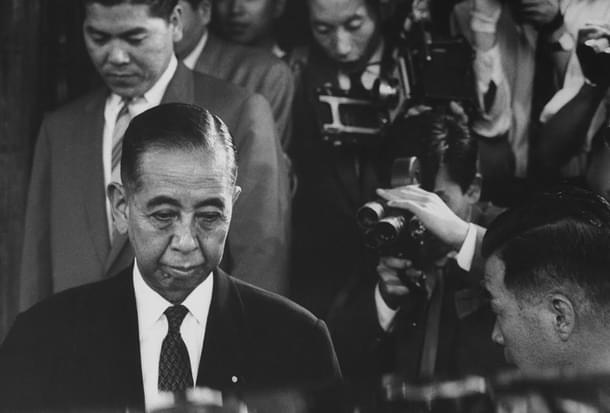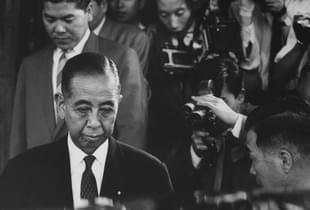World
Nobusuke Kishi, Shinzo Abe's Maternal Grandfather Who Served As Japanese PM From 1957 To 1960, Survived An Assassination Attempt
Swarajya Staff
Jul 08, 2022, 02:45 PM | Updated 05:56 PM IST
Save & read from anywhere!
Bookmark stories for easy access on any device or the Swarajya app.


Japan's former prime minister Shinzo Abe died on Friday (8 July) after being shot while campaigning for a parliamentary election.
Abe, the longest-serving prime minister of Japan, was shot this morning while making a stump speech in the Nara Prefecture.
He was rushed to a nearby hospital and later airlifted to a larger medical facility but died of excessive bleeding at 5:03 pm Japanese time.
Japanese news agencies report that the suspect is a former member of Japan's Maritime Self-Defense Force. The motive for the attack is yet to be ascertained.
"This is a heinous act of brutality that is utterly unforgivable," said Fumio Kishida, the current prime minister of Japan.
The former PM's assassination sent shockwaves in a country where violence is rare, and only a handful of people own guns.
Japan enforces strict laws on gun ownership, and shootings are rare. According to police records, there were merely 21 arrests for the use of firearms in 2020, with 12 of them gang-related. This is in a country of 125 million people.
Though rare, political assassination attempts are not entirely without precedent. Abe's maternal grandfather, Nobusuke Kishi, who served as prime minister of Japan from 1957 to 1960, survived an assassination attempt in the final days of the tenure.
After massive protests erupted in the country over a new security treaty signed with America in 1960, Kishi announced his decision to quit as PM. Kishi was a vociferous votary of the treaty. Ruling LDP picked Hayato Ikeda to succeed Kishi as the PM.
On July 14, 1960, Kishi was attacked by a knife-wielding assailant when he left his residence to attend a welcome party for his successor. Kishi was stabbed six times in the thigh, resulting in profuse bleeding. Kishi was rushed to the hospital, where he received a total of 30 stitches to close his wounds. Kishi survived because the knife had missed major arteries.
The assailant, later identified as Taisuke Aramaki, was an unemployed 65-year-old man affiliated with several right-wing groups. Aramaki claimed that his plan was not to kill Kishi. He is believed to have attacked PM over a security treaty signed with America.
On July 15, 1960, Kishi officially resigned, and Hayato Ikeda became prime minister.
While Kishi could survive the assassination attempt, Abe couldn't.





